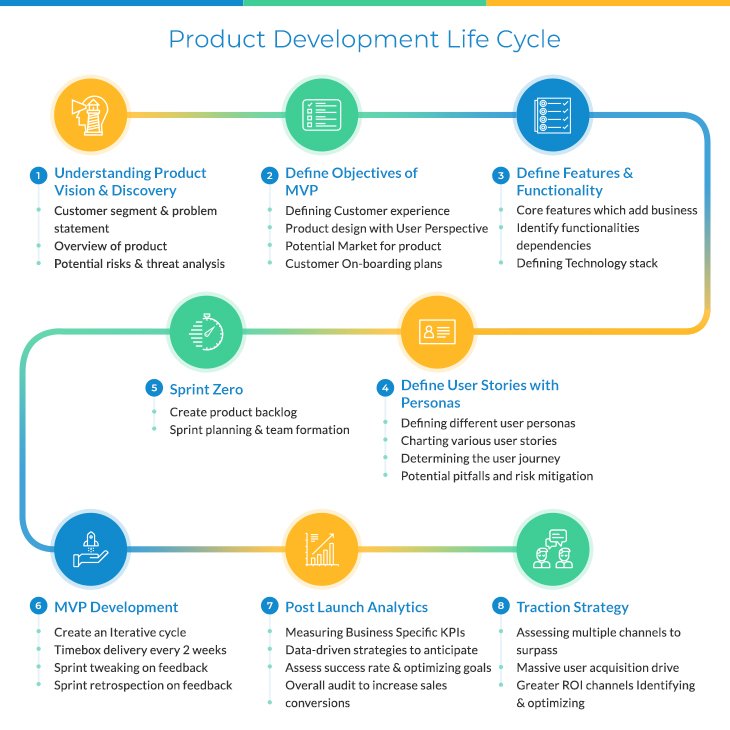Ideal Mobile App Development Turnaround Time- Everything you Need to know
Table of Contents
Mobile apps have become an integral part of modern lives. From inspiring a whole generation of on-demand apps, eCommerce apps, fitness apps to gaming; mobile applications have empowered users to book a taxi, order food, book tickets, shop online, track fitness and health and play games – all on their fingertips.
This makes it all the more indispensable to have a mobile app for your business. Whether it is a large business or a newly launched startup, a service industry or a product offering, a mobile app is a great way to engage with your target audience.
So, if you have a great mobile app idea in mind, and you are not sure how to go about getting it developed, you will have some clarity by the end of this article.
Before we dive deep into the topic, take a look at some facts about mobile apps!
- There are around 2.1 million apps available for download in the Google Play store, and almost 1.8 million apps in the Apple Store currently.
- According to our research on mobile apps, 25% of users abandon mobile apps after one use.
- A successful mobile app cannot be developed overnight. At Facebook, hundreds of app developers and designers work full-time on their app to maintain and constantly upgrade it.
These statistics show that to capture the attention of your users and to make sure they remain glued to your brand; your mobile app needs to be flawless. It is therefore important to invest in the right mobile app development company to successfully build an app for your business.
So, how much time does it take to convert an app idea into reality?
The turnaround time for your mobile app depends on the nature of your app. It varies based on:
- The size of your app,
- The number of screens you wish to include
- The number of functions you want to perform.
For example, Instagram and YouTube are large apps having more than 20 screens and can perform more than four functions, whereas reminder apps are smaller apps having lesser functionalities and features.
To make a correct estimation about the time required to build your app, you need to have a look at the scope of your mobile app development project, the resources you have access to, and the skill levels you will be able to process. Your aim must be to build a quality app with least bugs, has fewer complications and rich user experience.
Based on your requirements, a mobile app development agency or mobile app developer for hire will give you an estimated timeline to develop the MVP (minimum viable product) from envisioning and strategy to bringing the app to life.
Top Things to Know Before Getting your Mobile App Developed
To be ubiquitous like Facebook, WhatsApp, Instagram, Uber, etc., you need to ensure that your app is of high quality, serves your business purpose, and keeps your customers engaged. And, that quality takes time.
Here are some factors that influence and determine how long does it take to build an app.
The purpose of your app
It all starts with a great idea. But the idea that seems revolutionary to you needs to be executed seamlessly, to be converted into a successful product. So, the first and most vital step in mobile development is finding the purpose of your app and testing it against reality.
Determine the target group of your app, where they are, why will they download and use your app, your competitors offering similar services or product, and what features will your app require to STAND OUT. This research will take at least a few weeks.
Your technical requirements
Once you have your project scope in place, it is time to decide upon the technical wants and realities. The app developer and designer will need to know in detail about the functionalities, IoT product or device integrations, add-on features, platforms, and screen size requirements, etc.
The app development agency will then run technical possibility and feasibility checks. Based on the results, it will come up with an estimated time to work on the MVP.
Your mobile app team
Here are a few questions you need to ask yourself before you make a headway with your app development process.
- What are your needs when it comes to execution of your mobile app project?
- Do you need help with just the strategy and envisioning and have an in-house team of developers and designers to build the app?
- Or do you just have a rough idea and need help with end-to-end execution?
- Are you looking to hire talents in-house for the project, or do you plan to hire a dedicated app developer or hire the services of a professional app development company?
Building an in-house team will increase the turnaround time of your app development, besides it includes the intermittent cost of training, delay and retention woes. The best call would be to approach a professional app development agency with your iOS or Android app development requirements and outsource the entire project based on your budget and the urgency.
App development process
It is inevitable to follow a proper app development process to ensure your mobile app’s successful deployment to the App Store, Not following the various levels of the app development process will impact your project timeline.

A sturdy process will be a force multiplier to your project. It will directly impact and accelerate the scoping, UI/UX design, development and testing, beta testing, and launch processes. Once the scoping and planning is done, it is time to design and develop the app.
The development stage includes 3 key elements- the UI/UX Design, Front-End, and Back-End. The typical design to development ratio is 1:2. This means if the UI of an app, taken care by the designers takes 2-3 weeks to complete, the front-end and back-end development will take double the time. Developing the back-end is a time-consuming task, and the overall design and development time for a small app is about 6-7 weeks.
Your product roadmap
The timeline of your app development highly depends on your product roadmap. The association with the app developer does not end with the first release of your app. It will require constant enhancement and up-gradation over time. You might want to include new functionalities and technologies, add new offerings and features, or make certain alterations to match your target audiences’ changing expectations.
An experienced app development company will help you plan your app beyond the MVP. They will align your app to your business goals and provide a breakdown for your app with the features and functionalities you would want to include in your future releases.
App finalization and testing
Before the final release of your app or MVP, test it for both minor and major changes. Check for bugs, crashes, broken links, error messages or any major issue. While it is easy to install and test your nearly finished app on an Android phone, iOS app development and testing with TestFlight can be trickier.
Test your app across all major platforms and ensure it runs well on all devices. Failing to test an app extensively before launch is one of the primary reasons why an app is downloaded and immediately discarded. Beta testing and deployment will ideally take 1-3 weeks, depending upon the size and complexity of the app.
Quick Tips to Ensure Your App Development Does Not Slow Down
- Follow the app development process: Finalize the design of your app before getting into the development stage. Making changes in the design during development will delay the entire process. Include all the functionalities and features in one go to avoid recoding.
- Avoid mid-project changes: Bringing sudden changes in the plan or alterations in UI, code or features in the middle of the project can increase the app development time.
- Be quick in giving feedbacks: In case of inevitable changes in the design or functionalities, be as quick as possible in giving the feedback and getting the changes done.
- Complex technologies take longer time to implement: If your app requires the implementation of complex innovative technologies such as AR/VR, Artificial Intelligence, Machine Learning, etc. it will take longer.
- Go for cross-platform: Cross-platform app development with tools like React Native will help you build an app for multiple platforms and save cost and time of development. Building multi-platform apps will take lesser time as compared to developing the app individually for each platform.
- Hire a well-experienced agency or team: An experienced and expert team will expedite your development process, making it fast, easy, and less costly. Inexperienced developers will take a longer time in solving unexpected issues or bugs during the development process.
- Learn from Mobile Analytics: Last but not the least, use app analytics to your advantage to boost mobile user engagement. This requires an understanding of the metrics that need to be measured, and then take concrete actions based on the data to improve the user experience of your mobile app users.
The above-mentioned steps when followed will make your app ready to launch in the desired timeline. However, it (may) always takes longer than expected, as unforeseen issues during development and testing can delay the overall process. Keep a buffer of 1-2 weeks to launch an app that is bug-free and renders well on all the platform you aim to launch. A buoyant mobile app will require continuous maintenance, and you will never be done building it.
If you have an app idea and need an estimate as to how long does it take to develop a mobile app for your business, get in touch with our mobile app development experts today. We’ll get back to you within 1 business day.
Sanket Patel
- Posted on July 29, 2019
Table of Contents


